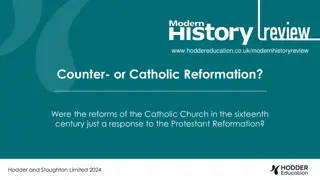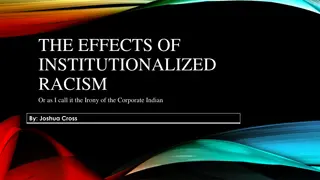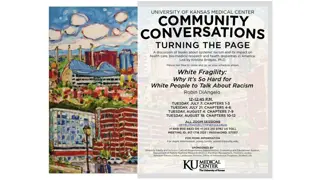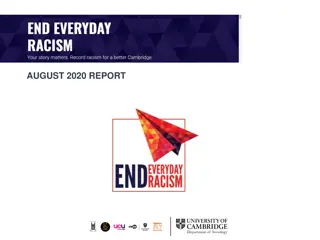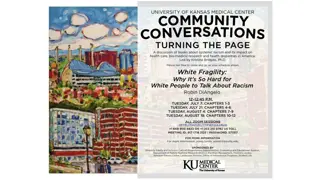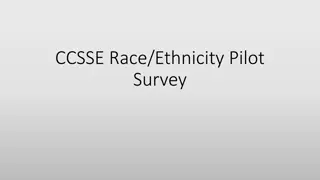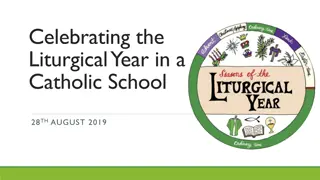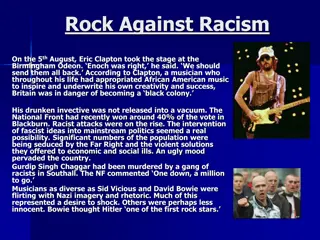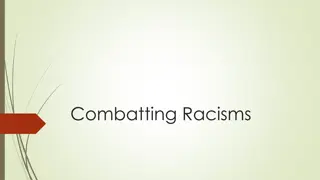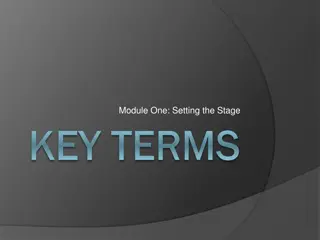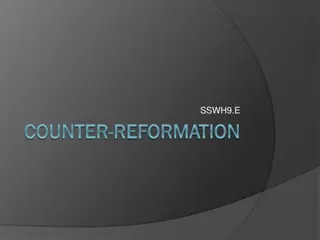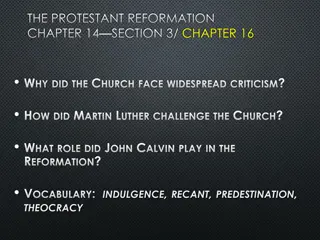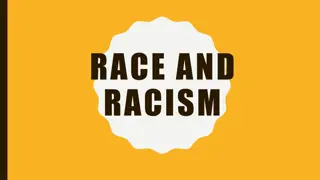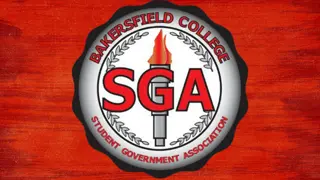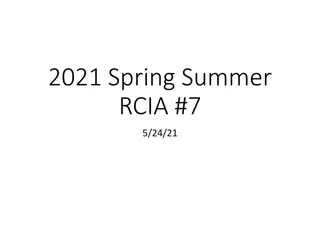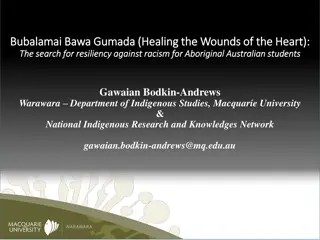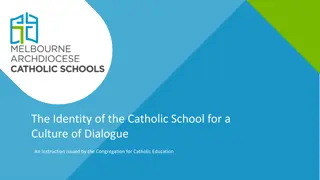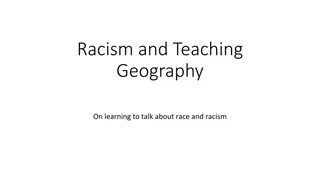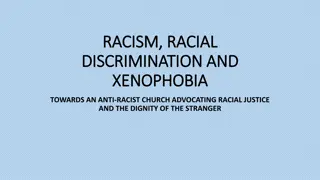
Exploring Racism in the Catholic Church Part 2
Uncover the history of racism within the Catholic Church, from Biblical perspectives on slavery to the establishment of black Catholic organizations and the pioneering work of the first Black Catholic priest in the US.
Download Presentation

Please find below an Image/Link to download the presentation.
The content on the website is provided AS IS for your information and personal use only. It may not be sold, licensed, or shared on other websites without obtaining consent from the author. If you encounter any issues during the download, it is possible that the publisher has removed the file from their server.
You are allowed to download the files provided on this website for personal or commercial use, subject to the condition that they are used lawfully. All files are the property of their respective owners.
The content on the website is provided AS IS for your information and personal use only. It may not be sold, licensed, or shared on other websites without obtaining consent from the author.
E N D
Presentation Transcript
Racism and the History of the Catholic Church Part 2
Opening prayer Text Box
Review of Session 1 In Part 1, we covered the Catholic Church: beginning with Biblical wisdom against slavery Old and New Testament mentions of slavery; Papal Bulls during the Age of Discovery and their effect on overseas exploration and entry into the slave trade; and The Church s to-and-fro arguments for and against slavery, and that various members of the Catholic Church were slaveholders.
Black Catholic Organizations & Founding Dates Oblate Sisters of Providence National Black Catholic Congress Sisters of the Blessed Sacrament for Indians and Colored People Knights of Peter Claver Committee for the Advancement of Colored Catholics St. Augustine s Seminary The Ladies Auxiliary of Peter Claver 1829 1889 1891 1909 1916 1920 1922
Knights of Columbus website History K of C Huts throughout the United States and Europe provided religious services, supplies and recreation under the motto, Everybody Welcome, Everything Free. Everybody meant everybody. Whatever your race or creed, you were welcome at K of C facilities
Black Catholic Organizations & Founding Dates Xavier University The National Black Catholic Clergy Caucus 1925 1968 Includes: National Black Catholic Seminarians' Association The National Association of Black Catholic Deacons The National Black Catholic Sisters Conference The National Convention of Black Lay Catholics National Office for Black Catholics (USCCB) 1969 1970
First US Black Catholic Priest The Venerable Father Augustus Tolton
Essentials of a Good Peace "In the providence of God there are among us millions of fellow citizens of the Negro race. We owe to these fellow citizens, who have contributed so largely to the development of our country, and for whose welfare history imposes on us a special obligation of justice, to see that they have in fact the rights which are given them in our Constitution. This means not only political equality, but also fair economic and educational opportunities, a just share in public welfare projects, good housing without exploitation, and a full chance for the social advancement of their race. US Bishops, 1943
The National Black Catholic Clergy Caucus Following the death of Reverend Martin Luther King, Jr. in April, 1968, the National Black Catholic Clergy Caucus issued a statement, beginning: "The Catholic Church in the United States, primarily a white racist institution, has addressed itself primarily to white society and is definitely a part of that society. On the contrary, we feel that her primary, though not exclusive work, should be in the area of institutional, attitudinal and societal change."
Brothers and Sisters to Us Racism is a sin: a sin that divides the human family, blots out the image of God among specific members of that family, and violates the fundamental human dignity of those called to be children of the same Father. Racism is the sin that says some human beings are inherently superior and others essentially inferior because of races. It is the sin that makes racial characteristics the determining factor for the exercise of human rights [it] is more than a disregard for the words of Jesus; it is a denial of the truth of the dignity of each human being revealed by the mystery of the Incarnation. US Bishops, 1979
Effect of Brothers & Sisters to Us Poll: 1. Have you read the Bishops pastoral letter, Brothers and Sisters to Us? 2. Do you recall activities in your parish or diocese, whether preaching, reading and discussing, etc. to learn about this document? Bishop George Murray, SJ shares two assessments of this pastoral letter.
Forming Consciences for Faithful Citizenship US Bishops publish prior to major elections to encourage voting and to help guide the faithful to make morally correct choices. They are revised periodically; there were some noted changes about racism between the 2011 and 2015 versions.
Forming Consciences for Faithful Citizenship 23 Other direct assaults on innocent human life and violations of human dignity, such as genocide, torture, racism, and the targeting of noncombatants in acts of terror or war, can never be justified. (2011) Other direct assaults on innocent human life, such as genocide, torture, and the targeting of noncombatants in acts of terror or war, can never be justified. Nor can violations of human dignity, such as acts of racism, treating workers as mere means to an end, deliberately subjecting workers to subhuman living conditions, treating the poor as disposable, or redefining marriage to deny its essential meaning, ever be justified. (2015)
Forming Consciences for Faithful Citizenship 34 A Catholic cannot vote for a candidate who takes a position in favor of an intrinsic evil, such as abortion or racism, if the voter s intent is to support that position. (2011) A Catholic cannot vote for a candidate who favors a policy promoting an intrinsically evil act, such as abortion, euthanasia, assisted suicide, deliberately subjecting workers or the poor to subhuman living conditions, redefining marriage in ways that violate its essential meaning, or racist behavior, if the voter s intent is to support that position. (2015)
Forming Consciences for Faithful Citizenship 42 Yet a candidate s position on a single issue that involves an intrinsic evil, such as support for legal abortion or the promotion of racism, may legitimately lead a voter to disqualify a candidate from receiving support. (2011) Yet if a candidate's position on a single issue promotes an intrinsically evil act, such as legal abortion, redefining marriage in a way that denies its essential meaning, or racist behavior, a voter may legitimately disqualify a candidate from receiving support. (2015)
US Racial Injustice 2011-2015 2011: Trayvon Martin, a 17-year-old African American, was shot and killed by George Zimmerman, a white neighborhood watch volunteer in Florida. 2013: Key provisions of the 1965 Voting Rights Act were struck down by the U.S. Supreme Court, noting that the conditions that originally justified these measures no longer characterize voting in the covered jurisdictions. 2013: George Zimmerman was acquitted of Trayvon Martin s 2012 murder, igniting protests around the country and calls for reform of the racially-biased criminal justice system; #BlackLivesMatter Movement launched by mobilizing millions of protesters.
2014: Eric Garner, an African American man, was killed by a New York City police officer. The officer kept Garner in a prohibited chokehold, ignoring Garner s frequent pleas, I can t breathe. Garner s death was ruled a homicide by the city coroner, but the officer was not indicted, resulting in weeks of near daily protests around the nation. 2014: Michael Brown, an 18-year-old African American man, was shot fatally by police in Ferguson, MO; the shooting and non-indictment of the officer cause months of protest and uprisings in Ferguson and around the nation.
2015: Freddie Gray, an African American man, died while in police custody; thousands took to the streets to protest police abuse in Baltimore. 2015: Nine members of the Mother Emmanuel African Methodist Episcopal Church in Charleston, SC, were killed during Bible study by Dylan Roof, a 21-year-old, self-proclaimed white supremacist. From 2011-2015, published records show 75 unarmed black persons were killed by police.
Open Wide Our Hearts US Bishops - 2018 Poll: 1. Have you read the Bishops pastoral letter, Open Wide our Hearts? 2. Do you recall activities in your parish or diocese, whether preaching, reading and discussing, etc. to learn about this document?
Catholic Voices Fr. Bryan Massingale, speaking at a Religious Formation Conference in 2019, Courage for an Interim Time that Does Not Yet Know Its Name . "Dear friends, we cannot tolerate or close our eyes on any type of racism or exclusion and pretend to defend the sacredness of every human life." Pope Francis, 6/3/20, General Audience following the death of George Floyd
Canadas Truth & Reconciliation process 2007-2015 The Truth & Reconciliation Commission (TRC) 6 years to interview > 6,500 witnesses & created a historical record of the residential schools system Hosted 7 national events to educate the Canadian public about the history/legacy of residential schools Shared and honored the experiences of former residential schools students and their families In June, 2015, presented a summary of findings and 94 "calls to action" to further reconciliation between Canadians and Indigenous peoples. Released a 6-volume final report, housed at The National Centre for Truth and Reconciliation, University of Manitoba in December, 2015.
Context: Sacrament of Reconciliation Reconciliation requires: Contrition sorrow, detestation for the sin committed , resolving not to sin again Examination of conscience - perfect (out of love of God) or imperfect (out of fear of consequence) made in the light of the Word of God Confession - placing all before the divine mercy for pardon Repair the harm penance, restorative justice Catechism, 1450
Reconciliation Many Catholic religious communities and dioceses participated in this system, which led to the suppression of Indigenous languages, culture and spirituality, failing to respect the rich history, traditions and wisdom of Indigenous Peoples. We acknowledge the grave abuses committed by some members of our Catholic community; physical, psychological, emotional, spiritual, cultural, and sexual . [and] sorrowfully acknowledge the historical and ongoing trauma and the legacy of suffering and challenges faced by Indigenous Peoples that continue to this day Catholic Bishops of Canada
A theological challenge: What is it about the Catholic definition of justice that makes many persons of that faith progressive in their attitude toward the poor in central America but reactionary in their views toward the poor in Black America? It is the failure of the Catholic Church to deal effectively with the problems of racism that causes me to question the quality of its commitment to justice. I do not want to minimize the importance of Catholic contributions to poor peoples struggles for justice, but I must point out the ambiguity of the Catholic stand on justice when racism is not addressed forthrightly. James Cone, Union Theological Seminary professor and author


